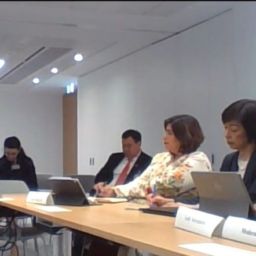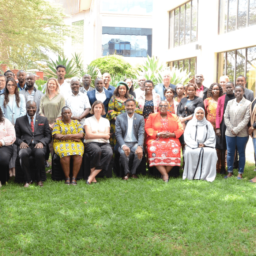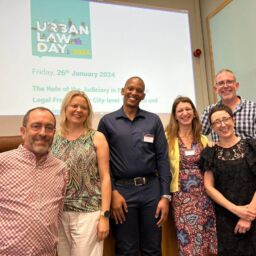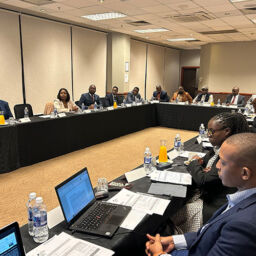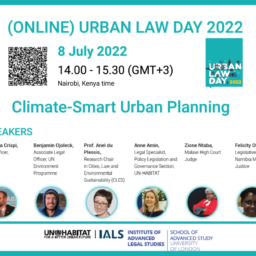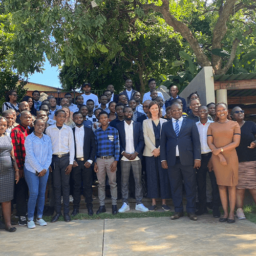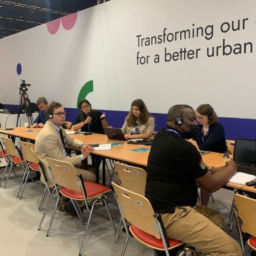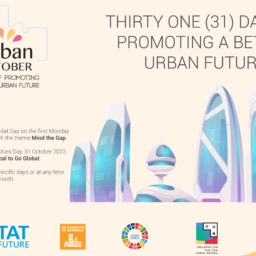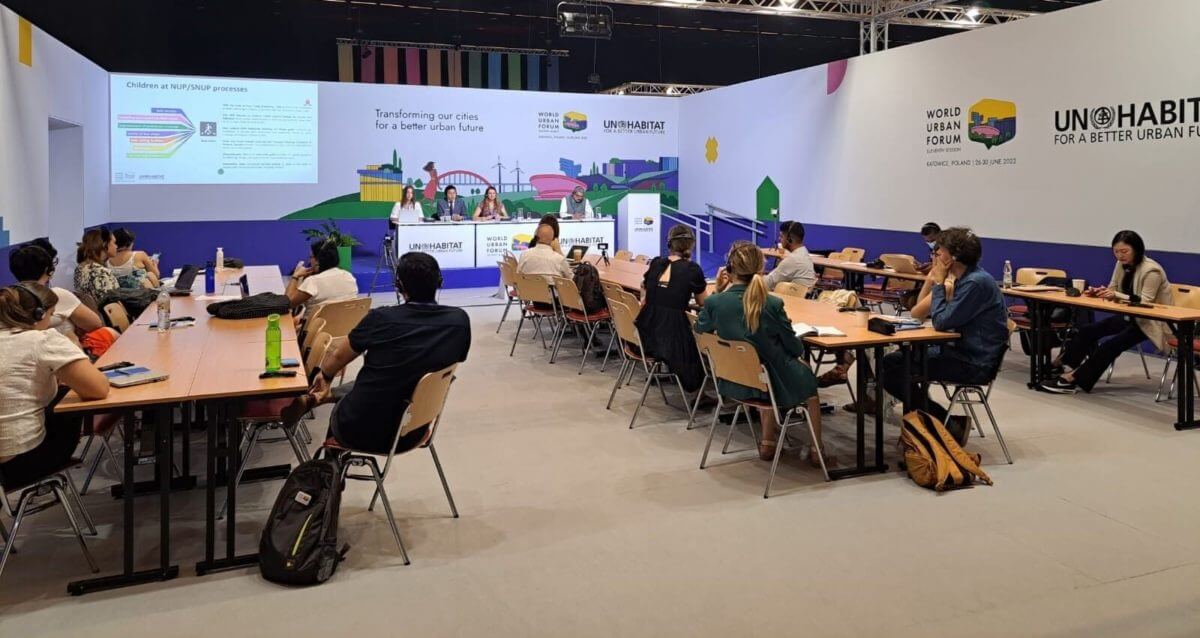
Katowice, Poland, 29 June 2022
Leaving No Child Behind: Towards Integrating Children’s Perspectives in Urban Policies, Laws and Standards
In 30 years, the number of children living in cities will increase from one-fourth to three-quarters, which will not only rejuvenate the general demographics of urban populations, but also require them to be at the heart of decision-making processes. However, most children will continue living in informal settlements meaning they will lack the ability to influence decisions that directly affect them, resulting in having limited options for walking, playing and self-development.
Therefore, UN-Habitat and UNICEF collaborated to create a specific tool to address inclusion of children into urban policy processes through participation mechanisms. Presented at a training event during the 11th edition of the World Urban Forum (WUF11) the Guidance on Developing and Operationalizing Child-Responsive Urban Policies, Laws and Standards demonstrates how to integrate children into urban policy processes and provides effective mechanisms of child-participation practices. Featuring a lively, interactive discussion, the training event enriched both panelists and participants with insights on how the tool works, its thematic topics, the target beneficiaries, as well as some best practices included in the Guidance, for possible replication. Special attention was paid to the issue of public spaces, a key public utility for children’s self-development. It was presented how national urban policies can provide guidance and support local government policy on public space design and development through effective leadership and stakeholder participation.
Ms. Maria Mousmouti from IALS showed by example how to word the law and what provisions to include to make it of child-responsive nature. Thus, before drafting a provision, the questions to be asked should touch upon how and in what way the legislation will affect children, what groups of children are supposed to be affected as well as how the legislation can deliver, support and promote children’s rights. Also, participants from Peru and Malawi, Rossana Poblet and Chrispin Chavula respectively, offered to “have consultations with children prior to the launch of the Guidance to hear their opinions as well as reinforce and visualize the idea of “child participation”.
In addition, participants shared the level of children inclusion in urban policy processes in their countries and pointed out legal lacunas preventing such processes from beginning. Towards the concluding session, the Malawi team of participants stressed the importance of financial allocations on the Guidance implementation and local urbanization by states as well as posed a question on how to operationalize the provisions into urban planning. The discussion itself embraced different angles thus revealing both the substantive parts of the presented Guidance, as well as practical ones.
The UN-Habitat Executive Director, Ms. Maimunah Mohd Sharif, at the opening ceremony of WUF11 said,
“the time for action is now”.
Thus, current joint actions of UN-Habitat, UNICEF and IALS on children inclusion into urban policy processes through participation mechanisms presented at the training event as well as operationalization of the provisions by countries in the future will lead to making children a priority in political, legislative, and governmental processes. Further steps on the Guidance launch include incorporation of the participant’s input, finalization of the text, conduction of consultation with the governments and stakeholders and, as suggested by Han Yang, a participant from China, development of two sets of the training package – one for policy makers and the other for children. The final stage will be marked by Guidance piloting. The training event was organized by UN-Habitat and UNICEF, with the support of the Institute of Advanced Legal Studies (IALS).



